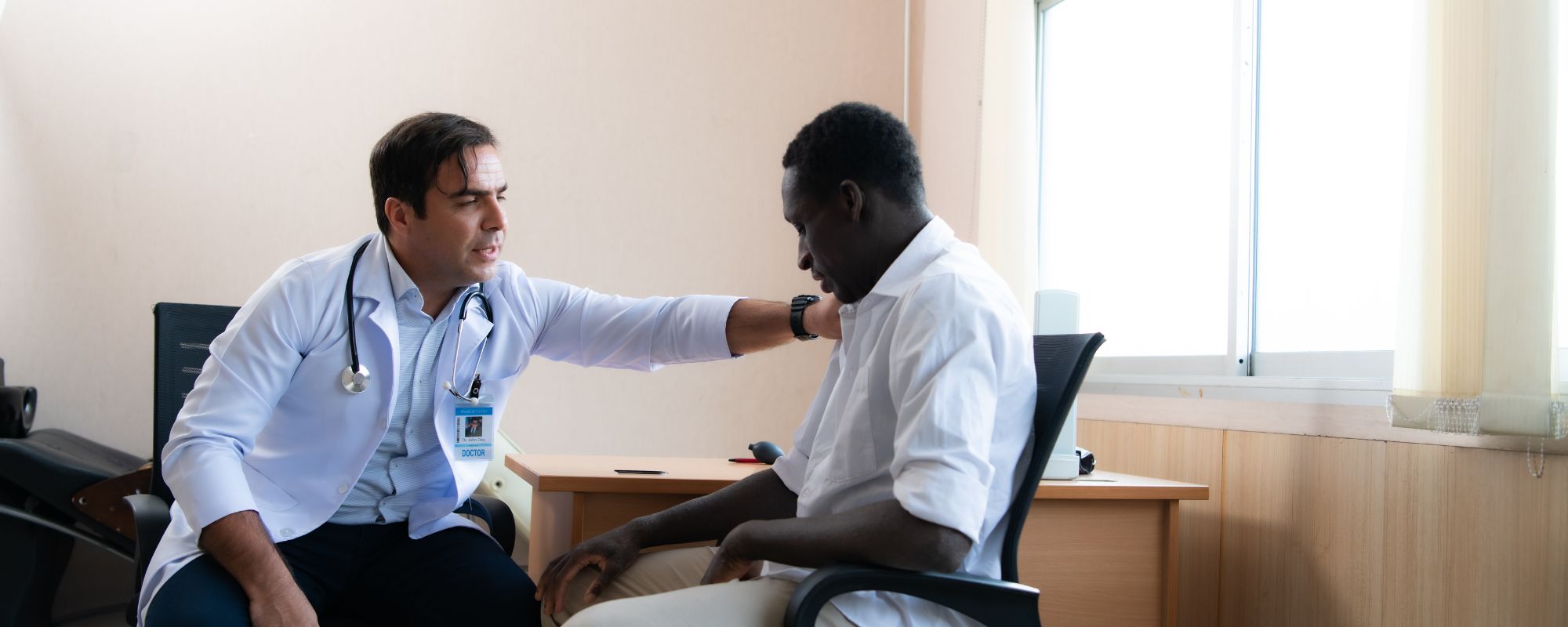Preventing relapse is a crucial element of any addiction recovery process. Veterans face unique risks when it comes to maintaining their sobriety. Because of this, they need specific support and tools to help them achieve long-term recovery.
At Chapter 5 Recovery, we dedicate ourselves to helping people of all backgrounds. Our veteran addiction treatment program provides the support veterans need to overcome addiction. If you are looking for veteran relapse prevention strategies, we are here to help.
What Does It Mean to Relapse?
Relapse occurs when someone who has been abstinent from a substance returns to using it. This is a common occurrence in addiction recovery, especially among veterans. It is important to understand that this does not mean the person has failed.
Many people relapse before they can achieve long-term sobriety. Relapse is a common hurdle in recovery from addiction, and there are many reasons why it happens. Stressful life events, anxiety, depression, anger, loneliness, or boredom can all be powerful triggers.
If someone doesn’t have healthy coping mechanisms for these feelings, relapse can occur. Certain people, places, or things can also be strong reminders of past substance use. Being around these triggers can increase cravings and make relapse more likely.
There are several studies on veteran relapse rates, including one published in the National Library of Medicine. According to this study, 94% of veterans who leave treatment early experience relapse. This is likely due to several unique factors experienced by veterans, including:
- Untreated mental health conditions: Veterans are more likely to experience PTSD, depression, and anxiety. These can all be triggers for relapse.
- Incomplete treatment: Studies show completing a full treatment program can reduce relapse rates.
- Social factors: Unemployment, homelessness, and legal issues can all make relapse more likely.
What Are the Risk Factors for Relapse?
Anyone who has experienced an addiction knows that this disease affects everyone differently. Because of this, the risks of relapse can vary based on the person as well. With that being said, there are several common relapse risk factors to be aware of, including:
- Exposure to triggers: Triggers can be anything that reminds you of your substance use. This can include people, places, or things. For example, if you used to drink alcohol at bars with your friends, being around them could trigger a craving to drink.
- Stress: Stress can be a major trigger for relapse. When you’re stressed, you may be more likely to turn to substances to cope.
- Negative emotions: Negative emotions can often trigger a relapse without proper coping mechanisms. These can include feelings such as anger, anxiety, depression, and boredom.
- Lack of social support: A strong support system is essential for recovery. If you don’t have people who support your sobriety, you are more likely to relapse.
- Mental health conditions: People with mental health conditions, such as depression or anxiety, are at higher risk for relapse.
- Using again, even a little: Using any amount of substances can increase your risk of relapse.
If you are in recovery, it’s important to be aware of your risk factors for relapse. By developing a plan to cope with these triggers, you can reduce your chances of relapsing. Chapter 5 Recovery can help you build a relapse prevention plan. We will provide you with the tools and resources to maintain long-term recovery.
Reach Out for Help With Addiction
Are you struggling with addiction?
Royal Life Centers at Chapter 5 is here to help you recover. Because we care.
Does PTSD Cause Relapse?
Post-traumatic stress disorder (PTSD) is a mental health condition that occurs after witnessing or experiencing a traumatic event. This condition can cause several symptoms, including flashbacks, nightmares, and severe anxiety.
PSTD is a common occurrence among veterans. This is because of how common it is for them to face exposure to traumatic situations while in the line of duty. Many service members witness violence, death, and even sexual assault during their time in service. Each of these events on their own can lead to PTSD.
Many veterans who struggle with this condition will turn to drugs and alcohol as coping mechanisms. Over time, this leads to addiction. Without proper treatment for both PTSD and addiction, veterans face a high risk of relapse.
Relapse Prevention in Veterans: Tips for Success
Recovery from addiction is a journey, with veterans facing unique challenges in this process. Fortunately, there are several tips available to help make this process easier. One of the most important things you can do during this time is to identify your triggers.
Some of the most common triggers include cravings, stress, loneliness, and boredom can be triggers. Veterans, however, may also have specific triggers related to their service. These can include things like sights, sounds, or smells.
Once you identify your triggers, it is important to develop healthy coping mechanisms for them. This could be as simple as exercise or spending time with supportive people. You may also want to practice relaxation techniques or find creative outlets.
Build a Support Network
Building a support network during this time is also crucial. You may want to consider joining a veteran-specific support group. Sharing experiences with people who understand can be powerful. Talking to a therapist and staying connected with loved ones can also be a crucial level of support.
One of your most valuable resources during this time will be seeking out professional help for substance use disorders. At Chapter 5 Recovery, our behavioral health program is here to help you throughout every step of your recovery. We can help treat your addiction and provide you with the tools you need to maintain your sobriety in the long term.
Veteran Addiction and Mental Health Treatment at Royal Life
Chapter 5 Recovery at Royal Life Centers prioritizes the well-being of every one of our guests. We work with our guests one-on-one to build personalized treatment plans that cater to their needs. We offer unique levels of care for addiction treatment and recovery across Royal Life Center’s Arizona treatment centers. Our levels of care include:
- Medical Detox
- Residential Inpatient Treatment
- Partial Hospitalization Program (PHO)
- Intensive Outpatient Program (IOP)
- Outpatient Rehab
- Aftercare and Sober Living
Our Veteran’s PTSD treatment in Arizona is specifically designed to address the unique recovery needs of service members. With a comprehensive and holistic approach to treatment, we address every factor of your substance abuse.
From detox to aftercare, our full continuum of care for substance abuse allows us to support our guests throughout every step of their recovery journey. We can help you learn the most effective relapse prevention strategies for substance use disorders. Our facility care team is here to help you face this unique challenge. If you are ready to start living a happier, healthier life free from drug and alcohol addiction, reach out to us. We are available anytime to help you begin your journey to long-term sobriety.
- Roadmap to Long-Term Sobriety: Making a Relapse Prevention Plan - July 24, 2024
- The Dangers of Mixing the Zombie Drugs Fentanyl and Xylazine - May 6, 2024
- The 12 Steps of NA Explained and How to Complete Them - April 22, 2024













